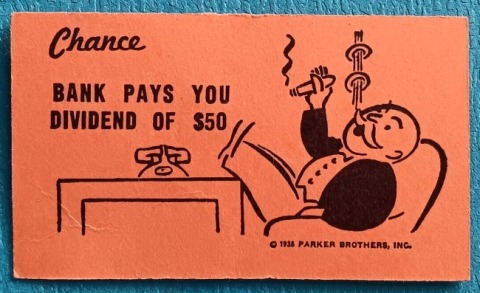
Other than from sheer jealousy, why should anyone object to some people having far more wealth than others?
The spiritual argument is that the superrich are vulnerable to the grave danger of relying on wealth rather than God for their security and beatitude. “It is easier for a camel to go through the eye of a needle than for a rich man to enter the kingdom of God,” says Christ. However, although the passage provides an excellent reason for warning the ultra-wealthy, it doesn’t provide a reason for objecting to them. Coercion should be used only to enforce the common good, not the private good.
The economic argument is that by having all that wealth, the ultra-wealthy are taking wealth away from the rest of us. “The rich get richer, and the poor get poorer.” No, a competitive economy is not a zero-sum game. Wealth employed in productive enterprises increases the wealth of those less favored, for instance by generating jobs.
The social argument is that disparities of wealth produce such envy that the society is torn apart. In itself, however, this isn’t so much an argument against disparities of wealth as an argument against flaunting them.
The ethical argument is that justice requires equality. Not so fast. Justice requires treating people who are equal in relevant respects equally; for example, we shouldn’t treat equally qualified job applicants differently because of race. But justice doesn’t require that everyone have the same stuff.
The political argument is that wealth is a means to political power, and those who crave wealth tend to be the sorts of persons who crave power too. You can run an oligarchy if some people are superrich – and some oligarchies are better than others -- but if you try to run a republic that way, you will lose it.
The first four arguments are weak, but I can’t think of a convincing retort to the political argument. Not only is it the strongest, but it alters the force of the others.
As to the spiritual argument: If superwealth produces dangerous concentrations of power, then the superrich are vulnerable not only to temptations to hurt themselves, but also to temptations to hurt others. The goods at risk are no longer merely private.
As to the economic argument: If superwealth makes some unusually powerful, then they will almost certainly use their power to give themselves non-competitive advantages, such as government subsidies. A competitive market tends to increase everyone’s wealth, but a rigged market may make many poorer.
As to the social argument: Although it may be possible to conceal extreme disparities of wealth, it is hard to blame have-nots for resenting them if the harm they suffer from them is real, rather than imaginary and churlish.
As to the ethical argument: Justice doesn’t require that everyone have the same stuff, but it does require a reasonably close approximation of a level playing floor. If extreme wealth can radically tip the floor, we have a problem.
Granted the dangers of great concentrations of wealth in private hands, what can be done about it? The problem is that most of the conceivable cures are even worse than the disease.
Progressives propose taxing all that wealth away (except, of course, from their allies), and instituting a “managed” economy. Many of the superrich even support progressive schemes: Wall Street is mostly Democrat these days. It isn’t difficult to see why, for if the progressive program were carried out thoroughly, it would not destroy concentrations of power, but only replace private concentrations of power with the concentration of power in the government. Those who expect to gain from government patronage welcome the prospect.
The present oligarchy, despite its flaws, tends to generate some checks on governmental power. The new kind of oligarchy would be a runaway car with nothing at all standing between the government at the top of the hill and the citizen at the bottom.
What about conservatives? Some simply deny the disease. This is obviously unsatisfactory. Others seem resigned to living with it. Since it is a progressive disorder – no pun intended – this is not realistic either. Following the present trajectory, the political order will not stand still, but will advance further into oligarchy.
Years ago as a young scholar, when I first began studying political theory, I was impatient with Aristotle, who, after saying that oligarchy was one of the “perverted” forms of government, asked not how to avoid it, but how to ameliorate it. I am not so impatient with him now. Political theory does not concern itself with the impossible.
On the other hand, perhaps the pragmatic suggestion of a mixed and balanced form of polity has not yet run its course. If concentrations of power cannot be avoided, maybe the best thing is to encourage countervailing concentrations, so that each kind of power is in competition with each of the others.
Although this is far from a new idea, it is much more difficult to put into practice than one might think. For instance, not so long ago, many people viewed labor and capital as countervailing forces which would keep each other from doing mischief. Since then, we have seen that big corporations and big industrial unions can work together to obtain governmental patronage and undermine competition.
Much the same sort of thing happens inside government itself. The Founders expected the branches of government use their powers to curb each other, but if two branches, or two chambers of the legislature, can both become more powerful by acting in concert, they will do so. So much for checks and balances.
Do you think it’s hard enough to build a house of sticks? Try to build it when the sticks are alive, squirming, growing, and jostling for position. I don’t say it’s impossible, but the work is never done.